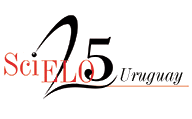Technology, uprooting and focal practices
José Ortega y Gasset and Albert Borgmann facing the technological alienation of the world
DOI:
https://doi.org/10.25185/10.3Keywords:
Albert Borgmann, José Ortega y Gasset, Philosophy of technology, Technique, AlienationAbstract
Contemporary German-American philosopher Albert Borgmann describes modern societies as structured upon a technological paradigm based on consumption, disengagement from reality, and disburdenment. As a reaction to this paradigm, Borgmann indicates the need to establish practices around focal things that center the personal and social world, affording it meaning, and thus promoting the good life. In 1993, the American philosopher Patrick Dust compared Borgmann’s thinking with that of Ortega y Gasset, suggesting that Ortega presents more useful ideas for understanding technology. This article, instead, proposes that the philosophies of Ortega and Borgmann largely overlap, since the two present the same solution to the contemporary technological predicament around the cultivation of focal practices.
Downloads
References
Alonso, Marcos. “La técnica en Ortega: más allá de «Meditación de la técnica»”. Revista de estudios orteguianos 38 (2019): 147-172.
Alonso, Marcos. “Ortega: A Philosophy of Technology Pioneer”. Annals of the University of Bucharest, Philosophy Series, Vol. LXIX, no.1, (2020): 9–26.
Borgmann, Albert. “Being in the Anthropocene: World Appropriation in the Age of Global Warming”. Environmental Philosophy 17, n.º 1 (1), (2020): 59-74. https://doi.org/10.5840/envirophil20201990
Borgmann, Albert. “From Electrons and Logic Gates to Everyday Life: On the Asymmetry of Technological Devices”. Synesis 4, (2013): 4-8.
Borgmann, Albert. “La tecnología y la búsqueda de la felicidad”. CTS: Revista iberoamericana de ciencia, tecnología y sociedad, 12, no. 5 (2005): 81-93.
Borgmann, Albert. “On the blessings of calamity and the burdens of good fortune”. The Hedgehog Review, 4, no. 3 (2002): 7-24.
Borgmann, Albert. “So who am I really? Personal identity in the age of the Internet”. AI & society 28, no. 1 (2013): 15-20. https://doi.org/10.1007/s00146-012-0388-0
Borgmann, Albert. “The moral significance of the material culture”. Inquiry 35, no. 3-4 (1992): 291-300. https://doi.org/10.1080/00201749208602295
Borgmann, Albert. Crossing the postmodern divide. Chicago: University of Chicago Press, 1992.
Borgmann, Albert. Power failure: Christianity in the culture of technology. Grand Rapids: Baker Books, 2003.
Borgmann, Albert. Real American Ethics: Taking responsibility for our country. Chicago: University of Chicago Press, 2010.
Borgmann, Albert. Technology and the character of contemporary life: A philosophical inquiry (Chicago: University of Chicago Press, 1984).
Dakers, John, y Marc De Vries. “Albert Borgmann”. En Reflections on Technology for Educational Practitioners: Philosophers of Technology Inspiring Technology Education, editado por John R. Dakers, Jonas Hallström, y Marc J. de Vries, 179-192. Brill: Países Bajos, 2020.
Diéguez, Antonio. “Thinking about technology, but... in Orega’s or in Heidegger’s style?”. Argumentos de Razón Técnica, 12, (2009): 99–123.
Dreyfus, Hubert, y Charles Spinosa. “Further reflections on Heidegger, technology, and the everyday”. Bulletin of Science, Technology & Society 23, no. 5 (2003): 339-349. https://doi.org/10.1177/0270467603259868
Dust, Patrick H. “Amando lo artificial: Ortega y Gasset y nuestra relación con la técnica hoy”. Isegoría 7 (1993): 123-134.
Ellacuría, Ignacio. “Técnica y vida humana en Ortega y Gasset: Estudio de «Meditación de la técnica»”. Escritos filosóficos 1 (1996): 415-518. (1996).
Frías, Francisco. “La interpretación Orteguiana de la fenomenología. El yo como el ejecutivo”. Convivium (2000): 91-108.
González, Pedro. “Perspicuity and existential alertness in José Ortega y Gasset’s Meditations on Hunting”. Disputatio. Philosophical Research Bulletin 5, no. 6 (2016): 395-403
Heidegger, Martin. “The Question Concerning Technology”. En The Question Concerning Technology and Other Essays, 3-35. New York: Harper Colophon, 1977.
Heikkerö, Topi. “Material Culture and the Conditions for the Good Life: Albert Borgmann on Thinking about Ethics in Technological Culture”. En Praxiology and the Philosophy of Technology, editado por Wojciech W. Gasparski, 215-229. New Jersey: Transaction Publishers, 2008.
Heikkerö, Topi. “The good life in a technological world: Focal things and practices in the West and in Japan”. Technology in Society 27, no. 2 (2005): 251-259. https://doi.org/10.1016/j.techsoc.2005.01.009
Herraiz, Antonio. “José Ortega y Gasset: el deporte como metáfora”. RICYDE. Revista Internacional de Ciencias del Deporte. 7, no. 23 (2011): 155. https://doi: 10.5232/ricyde
Inglis, David. “Meditations on Sport: On the Trailof Ortega y Gasset’s Philosophy of Sportive Existence”. Journal of the Philosophy of Sport 31, no. 1 (2004): 78-96. https://doi.org/10.1080/00948705.2004.9714651
Kelly Sean, Kelly, y Herbert Dreyfus. All Things Shining: Reading the Western Classics to find Meaning in a Secular Age. New York: Free Press, 2011.
Lasaga, José. Figuras de la vida buena:(ensayo sobre las ideas morales de Ortega y Gasset). (Madrid: Enigma), 2006.
Marcos, Alfredo. “Filosofía de la naturaleza humana”. Eikasia. Revista de Filosofía 6, no. 35 (2010): 181-208.
Marcos, Alfredo. “Silencio tecnológico”. Scio 15 (2018): 157-176.
Marías, Julián. Antropología metafísica. En, Obras vol. X (3ª ed.). Madrid: Revista de Occidente, 1982.
Marías, Julián. Historia de la filosofía. Madrid: Revista de Occidente, 1980.
Marías, Julián. Persona. Madrid: Alianza Editorial,1996.
Ortega y Gasset, José. Obras Completas. Madrid: Revista de Occidente, 12 volúmenes, 1946-/1983.
Rodríguez-Huéscar, Antonio. La innovación metafísica de Ortega. Crítica y superación del idealismo, vol. 9. Madrid: Ministerio de Educación, 1982. Recuperado de: http://www.cervantesvirtual.com/obra/la-innovacion-metafisica-de-ortega--critica-y-superacion-del-idealismo/
Scruton, Roger. On Hunting. Chicago: St. Agustine Press, 2002.
Strong, David, y Eric Higgs. “Borgmann’s Philosophy of Technology”. En Technology and the Good Life?, editado por Eric Higgs, Andrew Light, y David Strong, 17-37. Chicago: University of Chicago Press, 2000.
Published
How to Cite
Issue
Section
License
Copyright (c) 2021 Alexander Castleton

This work is licensed under a Creative Commons Attribution 4.0 International License.





























 This work is under a
This work is under a 